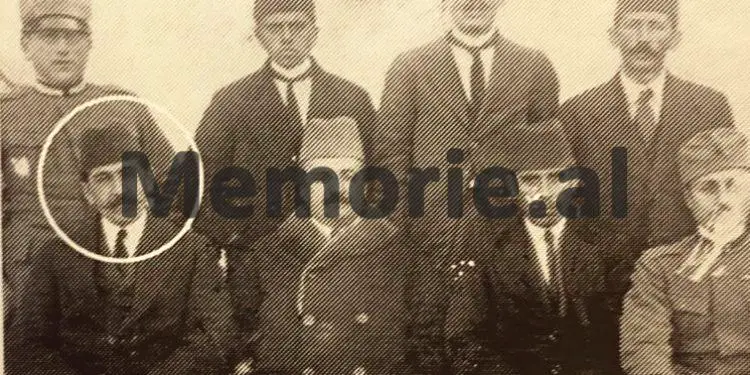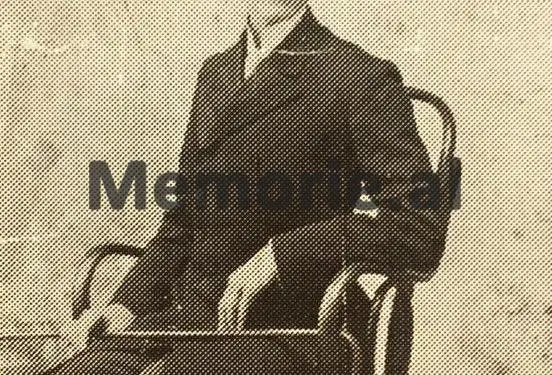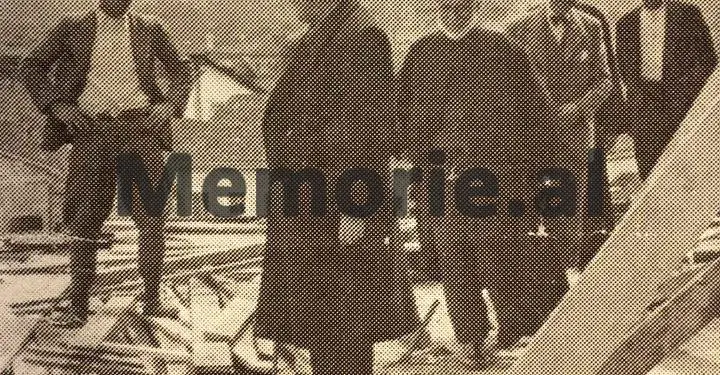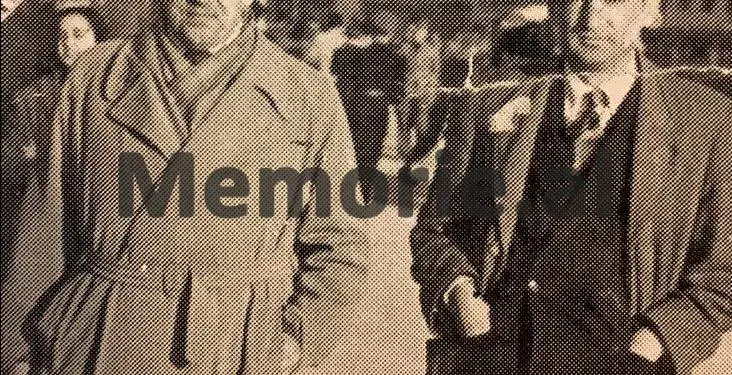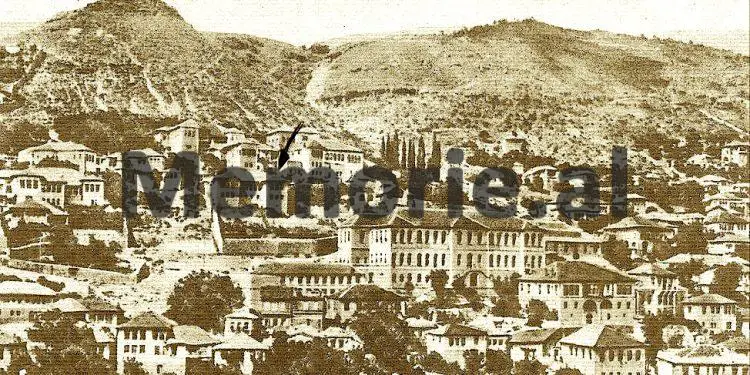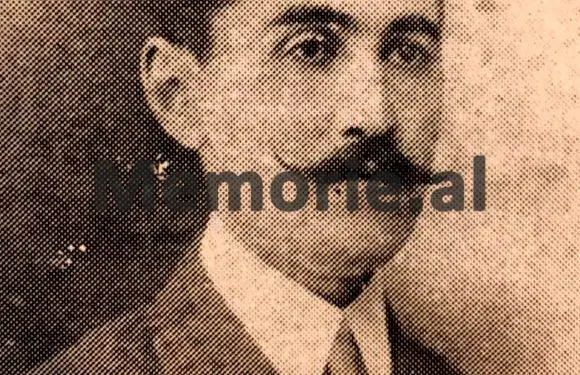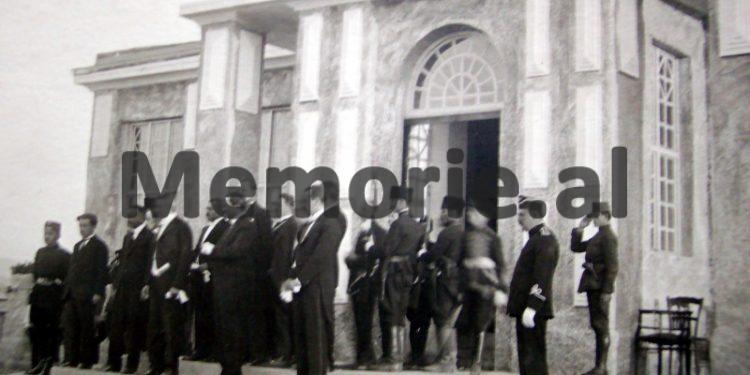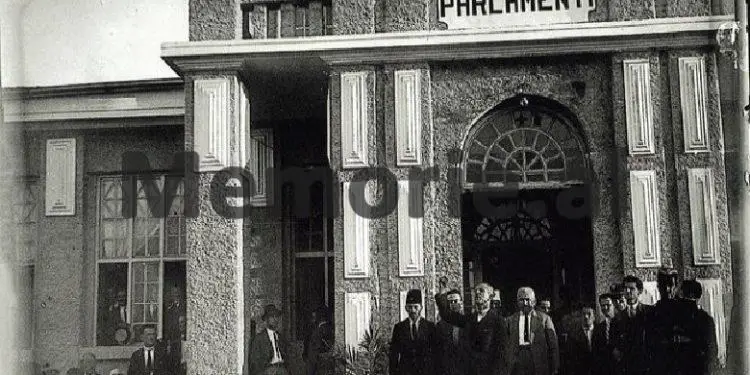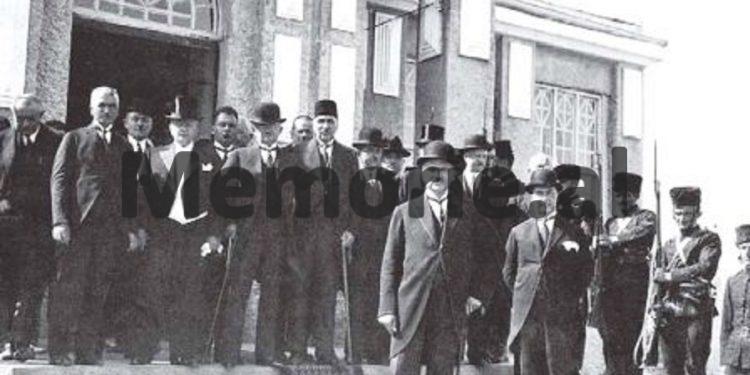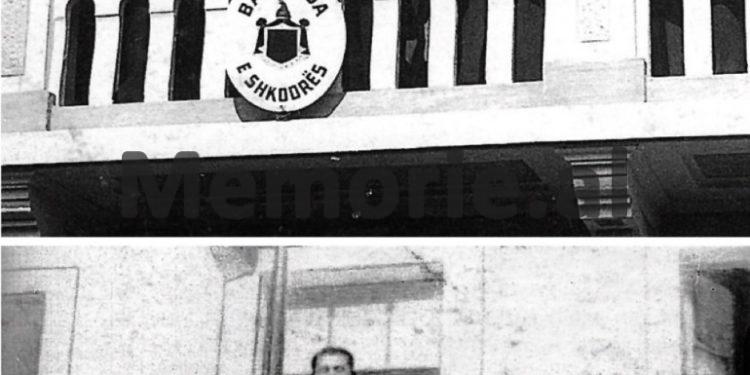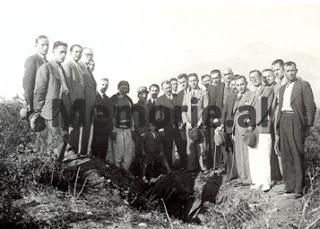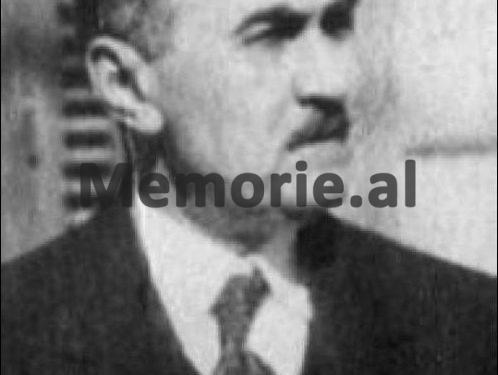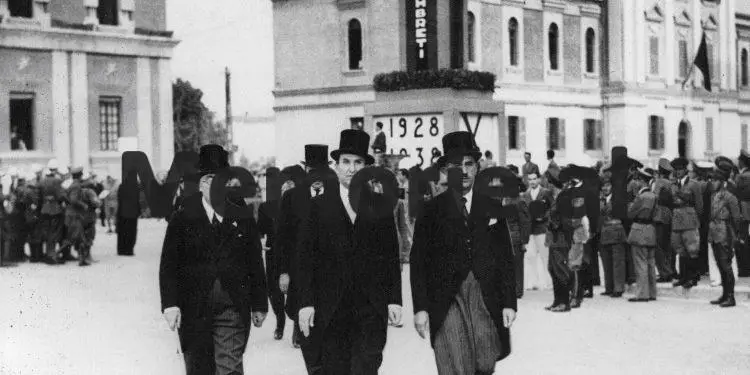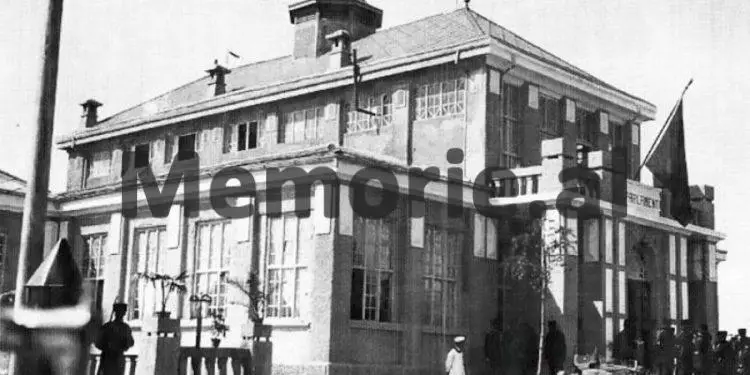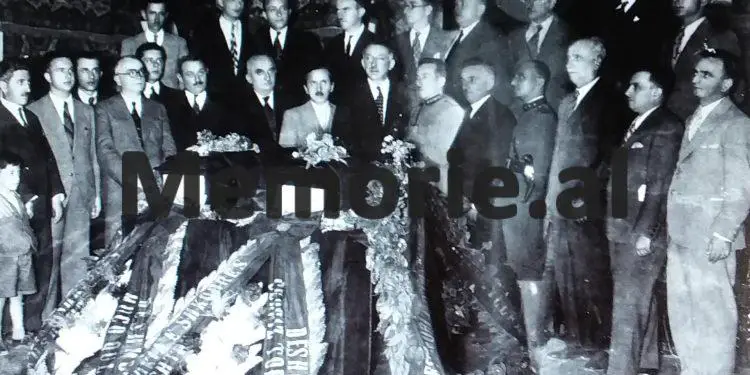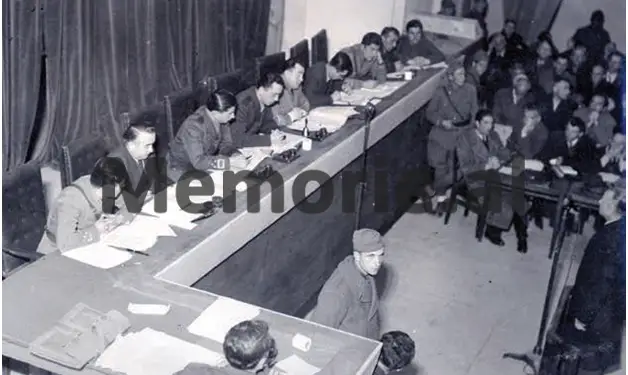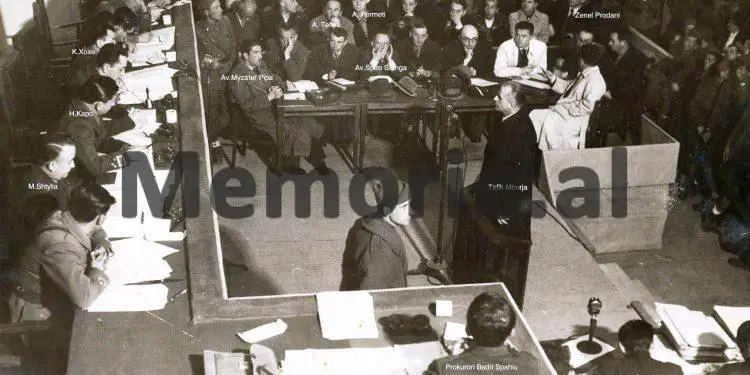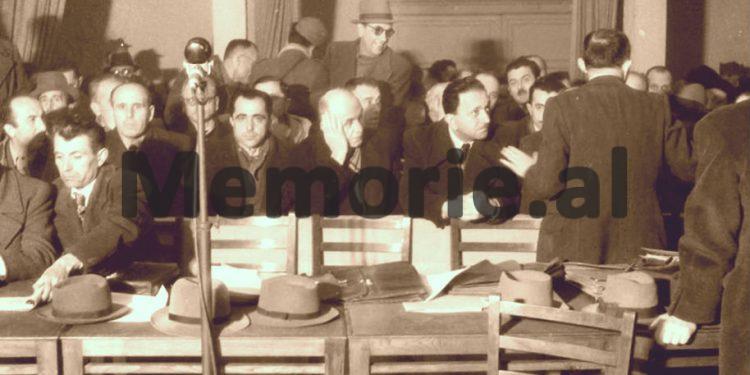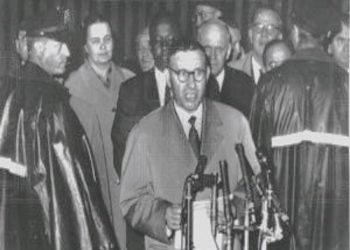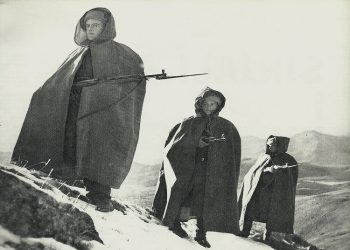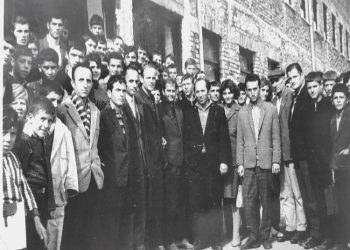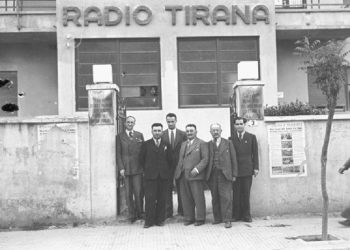Dashnor Kaloçi
Memorie.al publishes the unknown story of Javer bej Hurshit (originally from the distant Caucasus), the former mayor of Gjirokastra in 1920, who during the period of the Zog Monarchy and the occupation of the country (1939-1944) , would serve in senior positions and functions in the state administration, as a deputy, prefect and minister, until he was arrested by the newly ruling communists in November 1944, who took him to the Special Court in March 1945. and they sentenced him to death and shot him, even though Enver Hoxha’s father, Mulla Halili, said to his son: “Why are you going to kill Javer bey ?!”, and Enver replied “I do not kill him, the people kill him” , as well as the sentencing of Javeri’s son, Mehmet, the former secretary of the Municipality of Tirana during the occupation, who served 25 years in Burrel prison.
The whole story of Javer bey and his family, from the period when he was a child and was adapted in Istanbul by the famous southern bey, Maliq Pashai from Libohova, the wealth they inherited after his death, his participation in the leadership of 450 volunteer forces in 1912 in the fight for the capture of Saranda by the Greek forces by raising the Albanian flag there and in Delvina, saving the city of Gjirokastra by paying 5 thousand gold napoleons to the Greeks who wanted to burn it after the assassination of Despot, which for which was written by the newspaper “Laberia” in March 1925 when he ran for MP, his engagement in public and political life with a long career of nearly 35 years, as mayor, MP, mayor and minister, Ismail Qemali’s cousin and King Zog, a close friend of Mihal Grameno, Avni Rustemi, Faik Konica and Padre Gjergj Fishta who had donated with an autograph, “Lahuta…”, his organization of official ceremonies for the removal of the remains of Çerçiz Topulli t and Muço Qulli in 1936 in Shkodra, etc., is written by his hand in four thick notebooks, which are preserved by his nephew, Shahin Mehmet Hurshiti.
“As a Special Court prosecutor, I was required by law to assist in the execution of those 19 unfortunates. Some of them entrusted me with their trusts. Among the latter, Javer Hurshiti and Bishqemi sought to preserve the inviolability of their families and children. I told them and guaranteed that their families in Albania would have the same treatment that all residents would have. How much they believed this slogan, a god knows. But the events took place in such a way that they refuted the declarant and all those who claimed to be the builders of a new and happy human Albania… “, Bedri Spahiu, formerly, would write in his memoirs from 1993 The Prosecutor of the Special Court that took place in the distant March of 1945, where 19 people were sentenced to death, former ministers, deputies, military, and senior officials of the Albanian governments, from that of Ismail Qemali to that of Fiqëri Dines under German occupation in October 1944. According to former Prosecutor Spahiu, one of the 19 people who were shot was Javer Hurshiti, who asked that his family not be affected after his execution. Who was Hurshit, what was his origin and past, what functions did he hold in his long political career and why was he being shot being called a “criminal and enemy of the people”?!
Javer Hurshiti from the Caucasus
In the long list of more than 60 people who were put on the bench of accused as “criminals and enemies of the people” in that cold March of 1945, among the 19 shot were three people who did not were of Albanian origin. One of them, whose origin was from the distant Caucasus where Europe shares with Asia, was Javer Hurshiti, who closed the last days of his long political career of almost 25 years in the service of the Albanian state, as Prefect of Shkodra. during the period of Italian and German occupation of the country. The whole story of the bey originating from Abkhazia, starting from the vicissitudes of the family which ended in Istanbul after the Russo-Turkish wars, his adoption as the son of Maliq Pasha, (the great bey of Libohova and the whole of Southern Albania), who brought him to his palaces and until the persecution by the Turks and his introduction into public life, to climb the career ladder in the senior administration of the Albanian state, as Mayor, Prefect, MP and Minister, are written in form of memoirs in four notebooks by Javer Hurshiti himself in 1938. In the preface to these memoirs which are preserved today by Shahin Hurshiti, the last suckling of this noble family (Javeri’s nephew) is written, among other things: “Unfortunately, very few, are those Albanians who have kept notes of their memories, as if they had recorded them would one day be able to bring to light the full history of the National Renaissance. I too am one of those many who never kept a record of memories. I have been involved in almost all the national movements that have taken place in the province of Labëria: I have not been shaken from Gjirokastra all the time of the Greek and Italian occupation, I have witnessed so many important events that since those times you have recorded the events day by day, today you will be able to publish the complete history of Gjirokastra from 1912 to 1925. Exactly the history of those times that are most important for the history of our National Renaissance. Today I decided to write the memoirs, but these will be very flawed. Many important dates and many names of people who have played important roles, I have forgotten. Therefore, this work of mine will not have a great significance for the history of our nation, but will be very valuable to my family. Since I am the head of a family that was created by me, my descendants should know who I am, where I came from, where I grew up, what role I played in Albania… and I believe that my descendants will to be arrogant when they declare that they are my grandchildren. Therefore, these memories, rather than serving the history of the country, will serve my family. ”
How he came to Albania
According to the memoirs that Javer bej Hurshiti left written by his hand, he was born in Abkhazia (Soviet Soviet Republic) around 1883. He came to Albania around 1889, when he was not more than six years old, after being adopted by Maliq Pashai, who was from Libohova in Gjirokastra. Maliq Pashai was the nephew of Shanisha, the sister of Ali Pasha Tepelena. He was married for the first time to the daughter of Tahir Bey from Gjirokastra, whom he divorced only a few months later, and for the second time he married Shemshie Hanemi, who was the daughter of Nurullah Bey from Gjirokastra, with whom he had four daughters of four sons. After many years of having eight children, Shemshie Hanemi fell ill with tuberculosis and for this reason Maliq Pasha, decided to remarry. But in order not to upset his wife and children, he did not want to marry a woman from an Albanian family, he decided to marry her by marrying a jarija (slave). In this regard, in his memoirs, among others, Javer Bey writes: “There in the early nineteenth century, Maliq Bey went to Istanbul and bought for 300 Turkish lira, Esma Hanemi, which at that time was, as she said, 17 years old, and Maliq Pashai 50 years old. At that time, boys and girls were sold freely in the Istanbul market, most of them Circassians. This nation, after fighting bravely against Russia for 50 years, was finally invaded by it. The vast majority of the Muslim, Caucasian, and Ashka populations, and the Circassians, emigrated to Turkey, where most of the emigrants, unable to make ends meet, began selling their children. This was done mainly with Circassian girls who were known for their beauty and most were bought for the Sultan’s palace. So, after buying Esma Hanemi in Istanbul, Maliq Pashai kept her as his wife and sent her to live inside his mansions in Libohova, where he owned the property. Although she also had Shemsie Hanemi as a wife, Maliq Pashai also supported Esma, giving birth to him and three daughters and a son, but none of whom lived more than two years. Maliq Pasha was suggested that in order to take care of the children, he should free Esma from slavery and establish a crown with her. Maliq Pashai did so and entered into a legal marriage with Esma, with his recommendation he adopted a child named Ferhat, who was killed in a quarrel at the age of 25, with a guard in Libohova. In these dramatic circumstances for Esma, Maliq Bey suggested that she adopt another child, to have her as her child. Thus, Maliqi’s sister, Shanishaja, who was staying in Istanbul, by the order of Maliqi himself, finds a little boy about five years old, a Circassian cigar who was from a noble family “. This boy that Maliq Bey’s sister found in a rich Albanian family in Istanbul and took for his brother and wife, was Hurshit, whom Maliq Bey and Esma later renamed Javer. Regarding this, in his memoirs, among others, Javer bej Hurshti writes: “I came to Libohova in 1890. Regarding the year, I am sure that as Esma Hanemi told me, I came to Libohova without completing the year that Ferhati had died. As in a dream, I remember that when I came to the Sarajevo of Libohova, they took me straight to the room of Pasha, who according to the custom was lying near the fire and around him were the cats. I entered the room with a stick in my hand and as soon as I saw the cats I started beating them with a stick. Pashai laughed and said: “this boy has come to us in vain, he will become very wise”.
Educated in “Zosimea” and Istanbul
Maliq Pashai and Esmaja, his wife, considered the adopted son, Javer, as if they had their real child. Likewise, Javeri loved and respected them very much and about which he wrote: “I did not want in any way to leave my mother, whom I loved more than a real mother and she loved me more than a boy in my womb. I did not feel at all circus. You were so Albanianized and the Albanian nationalist ideas ruled me so much that I could not leave Albania even a sultan if they made me”. The little week was held by two parents who adopted her in fabulous conditions. He was educated at his home in the mansions of Libohova with private tutors coming from Gjirokastra who were very well paid by Maliq Pashai. He passed the high school exams at the “Zosimea” gymnasium in Ioannina and then finished high school in Istanbul. Yes, with private tutors, he learned French, Italian, Greek and Turkish that he knew quite well from a young age. In 1889, Maliq Bey died and Javeri was left alone with Esma in the palaces of Libohova. They stayed there until 1900, when they moved to Gjirokastra. Javeri went on holiday to Athens every year, where he was called the Beu of Megalles, a title he had received since he was 12 years old. Even after he grew up, he constantly went to Athens where he had made many friends and had his own estate in Argjirohar. After 1900, Javeri settled in Gjirokastra and began to engage in the public life of the city, making a name for himself at a very young age when he was not yet in his twenties. In this regard, Javeri writes in his memoirs: “In 1900, we bought the house of Nurullah Bey in Gjirokastra, for 700 Turkish liras. In 1902 came Xhavid Pashaj, Prefect of Gjirokastra, who was an ardent Circassian nationalist. His wife was the sister of the famous Hasan Çerqezi, who killed the entire Council of Ministers when they overthrew Sultan Aziz. When Xhavid Pashai found out that there was a Circassian boy in Gjirokastra, he sent and called me to his house. As soon as he saw me he said: you look from the face that you are a circus After that Pashai started to love me as his son and even though I was young, he often asked me and many times he liked my opinion. I was then teaching Arabic at the Madrasa and in 1902 you were appointed a member of the School Council and an inspector of the city’s primary schools. I did these tasks without pay to please Xhavid Pasha, who trained me for official duties. Supported as you are by Xhavid Pasha, I started to have some position and all the civil servants honored me. I was also honored by the people of Gjirokastra, who prayed for my needs in the Prefecture. This is how I started to be called in Gjirokastra as an influential person and who approached the local authorities. “But this influence of mine was known that it would not last long after the departure of Prefect Xhavid Pashaj, so I tried to do my best to secure my position with the local public.” Javeri, in addition to the work he began to perform in the state administration of Gjirokastra, devoted considerable time to books and about which in his memoirs he writes, among other things: “You are friends with the Greek consul of Gjirokastra, with whom they exchanged novels In French. “One day he sent me a novel which he had wrapped in an old Greek newspaper.” Javeri was also very enthusiastic and after the theater, he went to Athens to attend the performances that were given there. Javer Hurshiti together with his mother Esmanë, lived a mundane life immersed in luxury, spending as a family 700 to 900 Turkish lira per year from the great wealth that was left to you after the death of Maliq Pasha. They carried around them many servants and personal guards, and their properties were located within the borders of Albania, starting from Radati in Kakavija, Bularat, Zervat, Voshtina, up to the mountain Makri-Aleksi and Koshovica of today’s Greece. Thus, many of these properties such as agricultural land, pastures, forests, mills, etc., they were unable to control. In this regard, Javeri writes: “Neither I nor my mother Esmaja were able to contact directly the Greek citizens who were using our lands to rent them to you. But our Greek farmers deposited the property rents that belonged to us in Greek banks where they also had account numbers. “We always took from them as much as they gave us and we never forced them to pay as much as they owed, because we had so much property, that whatever the farmers’ obligations were, we were overwhelmed.”
Followed by Prime Minister Ferid Pashaj
Javer Bey Hurshiti was against the captive policy of Turkey in Albania and for the propaganda he made, he was followed by the Turkish administration of Gjirokastra by direct order of the Prime Minister Ferid Pashaj from Istanbul. Regarding this in his memoirs, Javeri writes: “From the beginning of July, a telegram came from Istanbul that Ferid Pashaj was removed from office and Seid Pashaj took his place. We were very happy with the fall of Ferid Pashaj, because we knew that all the persecutions against me were done on his orders. “After the overthrow of Ferid Pashaj, I hoped that justice would work within the law and since there was no document to prove my guilt, I had high hopes to escape”./ Memorie.al
Continues tomorrow




